Perks of Installing a High Efficiency Heating System
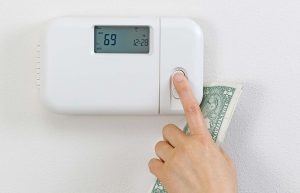 Wondering if you could benefit from a new high efficiency heating system? There are certainly a lot of perks to high efficiency furnaces and other heating equipment. If your current heating system is old and starting to show signs of its age, such as higher fuel bills and insufficient heating, replacing it now is a wise choice. Planning for furnace installation in Greensboro, NC, before winter comes offers additional advantages.
Wondering if you could benefit from a new high efficiency heating system? There are certainly a lot of perks to high efficiency furnaces and other heating equipment. If your current heating system is old and starting to show signs of its age, such as higher fuel bills and insufficient heating, replacing it now is a wise choice. Planning for furnace installation in Greensboro, NC, before winter comes offers additional advantages.
Benefits of Upgrading to a High Efficiency Furnace
- Save money on heating fuel. Whether you have natural gas, propane, or heating oil, a high efficiency furnace will require less fuel to heat your home than your old furnace. Your monthly gas bill will be lower, and you will require fewer refills of your propane or heating oil tank.
- Enjoy more consistent warmth. A high efficiency furnace heats your home more evenly and offers a more lasting warmth than your old furnace. Your home will maintain its goal temperature for longer and throughout each room.
- Quieter operation. New furnaces, especially high efficiency ones, are designed to run much more quietly than old furnaces. Been noticing a lot of noise coming from your heating system this season? That’s another sign of an aging furnace. Gain some significant peace and quiet with new furnace installation in Greensboro, NC.
Advantages to Upgrading your Heating System Now
Even when you know replacement is needed, it may be tempting to put off this particular undertaking until it gets cold. Resist this temptation and get your new furnace installation scheduled now. Here are the reasons why:
- If your old furnace fails on a cold winter night, you’ll find yourself in an emergency situation. Not having heat on a freezing night can become dangerous quickly. You may be forced to call your HVAC company after close of business. After-hours and emergency fees apply in these situations, meaning you’ll pay extra for the same services.
- HVAC companies get busy during the winter and may not be available to replace your furnace when it breaks down. If your heat breaks down in winter, its highly likely that your HVAC company will be busy repairing and replacing systems for other customers. You could be waiting in the cold for days before help arrives, or even be forced to stay elsewhere until your system can be replaced.
Call Berico for High Efficiency Furnace Installation in Greensboro, NC
Now is the time to take advantage of the current specials being offered by Berico. If you’ve been thinking about furnace replacement, it’s likely your air conditioning was installed at the same time in one complete HVAC system. If your furnace needs to be replaced, your air conditioning surely does too as AC systems typically don’t last as long as furnaces. Berico is offering a free furnace installation with any air conditioning installation. Been thinking about switching to heating oil? You can get a $500 rebate for installing a new oil furnace or tank. So don’t wait any longer. Start gaining all the perks that come with new high efficiency furnace installation in Greensboro, NC. Call Berico (336)273-8663.


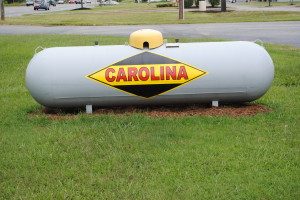 Does your home have an electric heating system? Have you ever wondered if there’s another, possibly better, way to heat your home? There is. It’s called propane, and it has many advantages over electric heat. Switching is easy. It only requires a new furnace and
Does your home have an electric heating system? Have you ever wondered if there’s another, possibly better, way to heat your home? There is. It’s called propane, and it has many advantages over electric heat. Switching is easy. It only requires a new furnace and 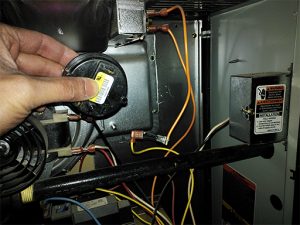 As fall approaches and the weather begins to cool, you should start thinking about home maintenance. With winter coming soon there are some checks that need to be done and possibly some adjustments made to prepare your home for the season ahead. Not sure what to do? Follow this checklist to get your home ready for winter.
As fall approaches and the weather begins to cool, you should start thinking about home maintenance. With winter coming soon there are some checks that need to be done and possibly some adjustments made to prepare your home for the season ahead. Not sure what to do? Follow this checklist to get your home ready for winter.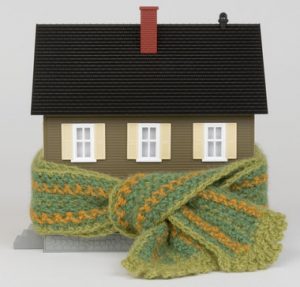 Colder weather is on the horizon. Is your home ready for winter? Freezing temperatures and snow can take their toll on your house, but you can avoid many household problems that can occur during winter by properly winterizing your home. Follow these steps and keep your eye out for
Colder weather is on the horizon. Is your home ready for winter? Freezing temperatures and snow can take their toll on your house, but you can avoid many household problems that can occur during winter by properly winterizing your home. Follow these steps and keep your eye out for 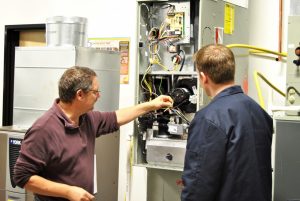 This summer has been a real scorcher. We’ve had temperatures in the upper 90s, not much rain, burned out grass, and even leaves falling from trees prematurely. But does a hot summer mean we’re in for a bitterly cold winter? You could say it’s one of those “old wives’ tales” that a hot summer proceeds a colder winter, but is there any actual science behind the theory? And what does that mean for HVAC companies performing
This summer has been a real scorcher. We’ve had temperatures in the upper 90s, not much rain, burned out grass, and even leaves falling from trees prematurely. But does a hot summer mean we’re in for a bitterly cold winter? You could say it’s one of those “old wives’ tales” that a hot summer proceeds a colder winter, but is there any actual science behind the theory? And what does that mean for HVAC companies performing 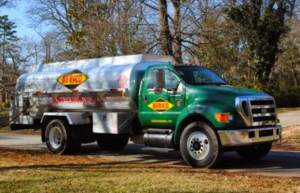 Are you looking for ways to lower your utility costs this winter? When the weather gets cold it is necessary to heat your home in some way. Whether you use propane, natural gas, electricity, heating oil, or another energy source for home heat, there are ways to reduce the cost. From furnace maintenance to
Are you looking for ways to lower your utility costs this winter? When the weather gets cold it is necessary to heat your home in some way. Whether you use propane, natural gas, electricity, heating oil, or another energy source for home heat, there are ways to reduce the cost. From furnace maintenance to  Are you in the market for a new furnace? Maybe your old one is starting to fail, or perhaps you are building a new home and need to install a furnace for the first time. Whatever the reason you are considering a
Are you in the market for a new furnace? Maybe your old one is starting to fail, or perhaps you are building a new home and need to install a furnace for the first time. Whatever the reason you are considering a 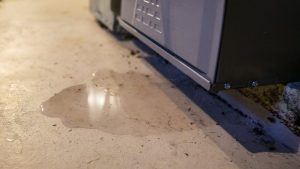 Uh oh. There’s water puddled around your furnace. You’re thinking, “This can’t be good.” There are a few possible causes for a leaky furnace from normal wear and tear to faulty installation. Some of the causes can be easily repaired. Others may mean you need a new furnace. Before you worry too much or start Googling new furnace installation in Greensboro, NC, consider the possible reasons for the leak.
Uh oh. There’s water puddled around your furnace. You’re thinking, “This can’t be good.” There are a few possible causes for a leaky furnace from normal wear and tear to faulty installation. Some of the causes can be easily repaired. Others may mean you need a new furnace. Before you worry too much or start Googling new furnace installation in Greensboro, NC, consider the possible reasons for the leak. Does your household run on propane? Propane can fuel many appliances in your home from your furnace to your hot water heater to your clothing dryer. If you use propane, you will need your tank refilled from time to time. Wondering when is the best time of year to
Does your household run on propane? Propane can fuel many appliances in your home from your furnace to your hot water heater to your clothing dryer. If you use propane, you will need your tank refilled from time to time. Wondering when is the best time of year to